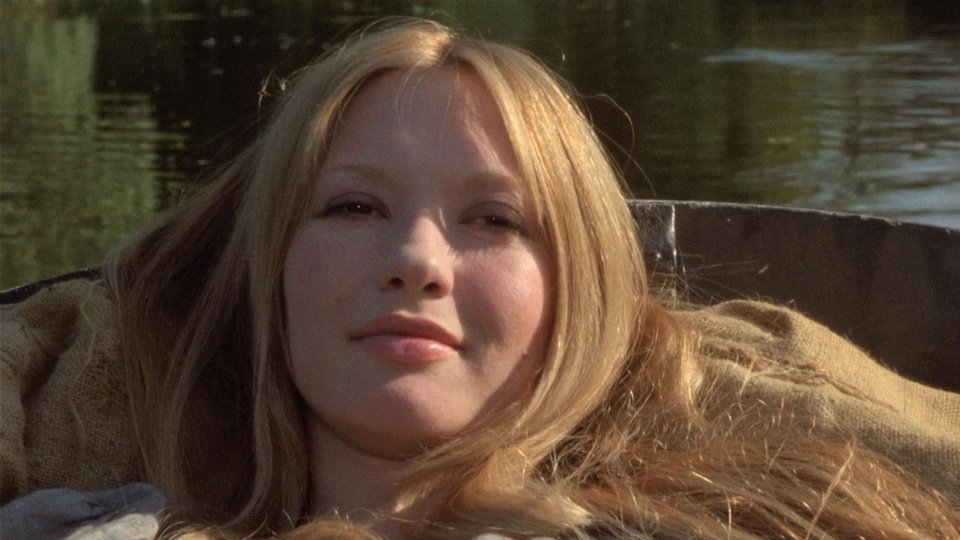Demons of the Mind

Despite excellent production values, this gothic horror from Hammer proves a pale imitation of the studio’s earlier efforts.
Bear with me as I attempt to explain the plot.
The film opens with a young woman, Elizabeth, in the small cottage she shares with her boyfriend. After some gratuitous nudity, she’s abducted and carted back to an imposing castle. We learn she’s the daughter of the local Baron, played by top-billed Robert Hardy. The Baron and his staff keep her drugged and bedridden, much to the agitation of her brother, Emil, played by Shane Briant. We see some POV murders under a full moon in the woods, and the Baron complains of a “blood disease.”
Patrick Magee arrives, playing a doctor. He puts the Baron under hypnosis, forcing him to recall his wedding night. Some suspect psychology later, and it’s clear we’re in a madman picture. Or are we? A bit later the Baron seems to be possessing Emil—it’s not clear. More murders. The villagers form a mob, storm the castle, and everything culminates with a chase through the woods, some bloody dismemberment and a staking.
If that synopsis seems disjointed, then I have conveyed a sense of the viewing experience. After a werewolf movie setup, the film careens into a “Fall of the House of Usher”-style plot with the insane Baron convinced his children will inherit his madness. This wouldn’t be half-bad, except it feels like the filmmakers took a werewolf movie script and simply rewrote a few scenes to excise the werewolf. Thus, you have a film that builds to a monstrous payoff that never arrives.
Instead, we get a sweaty-faced Briant, desperate to see Elizabeth, stabbing his aunt repeatedly in the throat with a ring full of keys. Covered in gore, Briant stands up, bug-eyed, and searches the keys for the one to Elizabeth’s room. Then—inexplicably—he throws the keys away. I laughed aloud at the inanity. Briant then attempts to break down Elizabeth’s door. He runs forward, hits the door, and drops to the floor as the door swings open. More cackles. How can the film expect us to take it seriously?
Compounding matters, Hardy seems to sulk his way through the picture, rattling off his lines in a drudging tone as though eager to speed through each take. To be fair, it’s a talky script full of atrocious dialogue, but Hardy’s delivery shows how much Hammer benefited from Peter Cushing and Christopher Lee, who would have delivered the lines with the same professional rigor as they would Shakespeare.
Indeed, in contrast to Hardy, Magee seems committed to his part, and does more than just recite his lines. He reacts to the other performers and leverages body language and pauses to imbue gravitas. His limited role can’t save the picture, however, and his abrupt exit provides another moment of unintended comedy.
On the plus side, the production values shine. From the castle to the village, and even a lake, we get actual locations, not the usual Hammer redressed studio sets.
But the film even fumbles these, as the nighttime finale sees the villagers marching through the dark forest, only to cut to the Baron and his children racing through the same forest—clearly sunlit.
What a disappointment. History attributes Hammer’s demise to the studio failing to adapt to its audience’s changing tastes—that their gothic horrors fell out of favor to satanic shockers like Rosemary’s Baby and The Exorcist. Watching Demons of the Mind, however, one could argue it was simply down to diminished quality.